
Two of our favorite topics to research here at Singletracks are tires and suspension, and either topic is riddled with rabbit holes to follow. At the end of those holes, we get to find the burrow where those rabbits, or engineers, are doing all sorts of fascinating things to make our bikes better.
The folks at California’s DVO Suspension have a long list of exciting new components coming out, and before any of that gear arrives we wanted to chat with them to find out who they are why they do what they do.
The suspension story of DVO’s founder and owner, Bryson Martin, begins long before the 2012 founding of DVO. Backed by an MBA from Harvard Business School, Martin started another suspension company, called Marzocchi USA, which he ran for over 22 years between 1990 and 2012. That’s right, all of those legendary freeride forks were designed and manufactured under his supervision. The Italian suspension company had been making squishy components for motorsport use, and he started up the MTB branch separately in the states.
Martin recalls his time with Marzocchi with some trepidation. “At one point, we were doing a couple-hundred-million dollars in business. So we were a big company, moving quickly. You’re just waiting for the wheels to fall off.” He says that the MTB business was doing well when the 2008 financial crisis hit, but the Italian side had invested in a variety of things that weren’t performing so well. They ended up selling Marzocchi to Tenneco, which is the same company that currently owns Öhlins Racing AB. See the small MTB world quickly shrinking here?

After a notably unpleasant experience working with Tenneco, Martin looked into buying Marzocchi back, but he says they wanted far too much money for the business. The Italian name and brand were ultimately purchased by Fox, leaving Martin to start anew. He kicked off DVO with some friends from the last business, and hasn’t looked back since.
DVO is short for “developed,” which is a term that the component designers would write on a design once it was approved and ready to be tested. Like any good business owner, Martin wanted a name that would be easy to remember, and that could be pronounced in almost any language — while intoxicated. He jokes that their first market research trip consisted of traveling around the world getting friends drunk to see if they could pronounce the name. That part might be a fib.

With a crew of talented engineers and testers on hand, Martin needed to find a production factory. He linked up a connection with the folks at the SR Suntour factory in Taiwan, which is where DVO components are made today. Martin says that the SR Suntour factory is rather massive, producing and assembling as many suspension products in four weeks as Fox and RockShox do in a year, according to him. The brands remain entirely separate, with their own engineering teams, product designs, spec, tolerances, and expectations for the finished product, though they do share a few of the more universal hardware bits like seals and wipers. In short, the only real connection between the two suspension companies is that their components are made under the same roof. In every other way, they are direct competitors.
Prior to the pandemic Bryson was flying to the factory almost once per month to check on things and meet with his team there. He says that there’s one super sketchy MTB trail in the area called Super 8 that he rides while visiting, but that he prefers his home tracks in southern California.

The whole team at DVO is made up of mountain bikers, and they all test their new gear personally. In addition to their employees, DVO uses professional riders like Rae Morrison, Brian Lopes, Reece Wallace, and a number of up-and-coming athletes. Bryson Martin Jr and Sr both say that their favorite place to test is in Nevada, where the tracks are extra rough and they say there’s zero grip. Going fast on those trails requires a dialed suspension tune, among other things.
They also have all of their products tested in the SR Suntour lab to make sure they can handle a few million cycles and can take all of the different impact forces that mountain biking serves up. Martin mentioned that he would love to own all of the machines to test products, but paying to use someone else’s gear is more cost-effective.
Traction and comfort are two of the elements DVO suspension components are known for, and Martin says he aims to design a product that most people will find comfortable and confidence-inspiring, rather than designing components just for the top pro riders. He notes that it’s entirely possible to dial in the settings for those elite riders. but they are not the target audience. Riders who don’t find the setup they prefer with a DVO fork or shock can send it in for a custom tune, and all suspension components are available with a custom tune for an additional $100.
The custom tune leans toward another aspect of business that DVO is well known for, and that’s customer service. If you want a custom tune, you can call DVO and a breathing human will answer the phone rather quickly to answer any of your questions. For tunes, one of the company’s two setup experts will talk it over with you, hopping on a video call if you prefer, to make sure that what you need is a new tune and not another volume spacer or simpler solution. Martin says that “the core value with DVO is just being a really relatable company. Not to blow customers off with a cool guy attitude or anything like that. Our whole thing is really, you know, oriented around customer service; doing whatever we can to take care of customers, whether they have a problem, or they need custom tuning, or whatever they need. We want to make sure that a customer is completely taken care of.”

DVO isn’t as big as some other suspension companies, and they don’t aim to be. After the growth issues he experienced with Marzocchi, Martin has no interest in market domination. He adds that “The key for us is that we’re gonna maintain a smaller entity. You know, try to be a cool company and not have too much stress and chaos. You can still be really profitable and still be a small-sized company.”
That’s enough for this rabbit hole stroll. Stay tuned to see what’s new from DVO in the coming months.

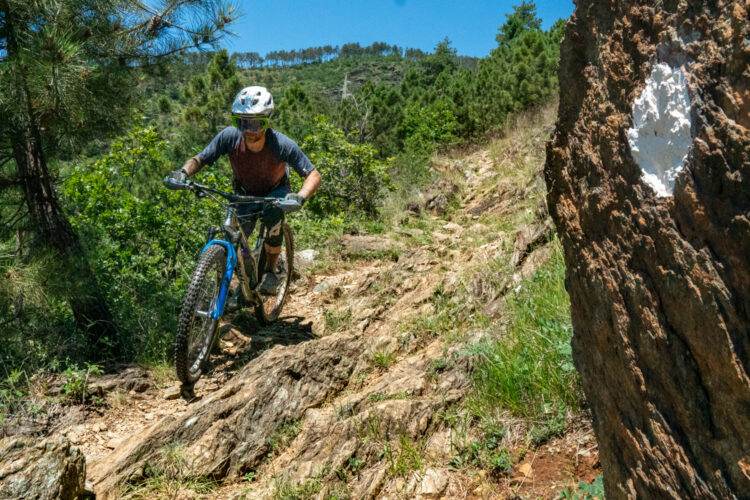

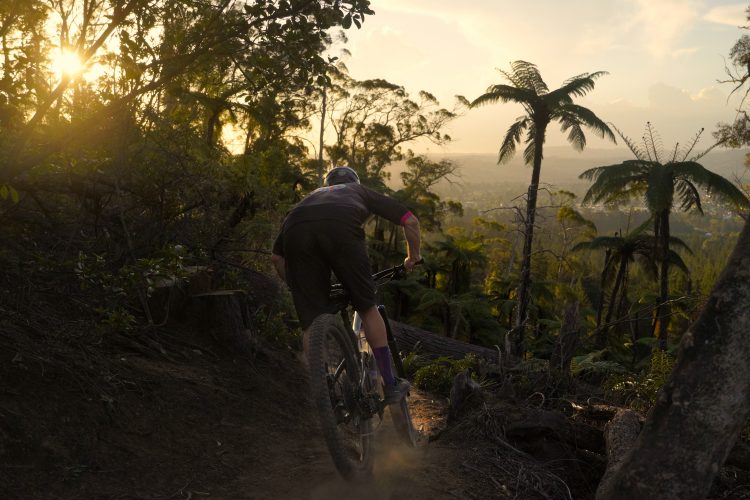

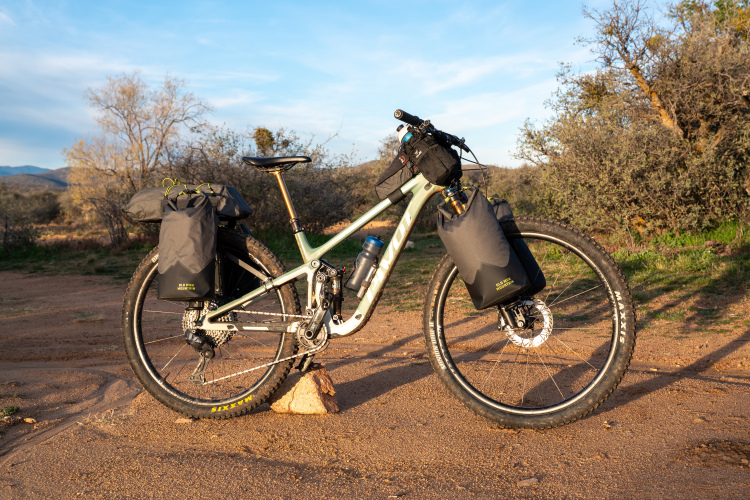

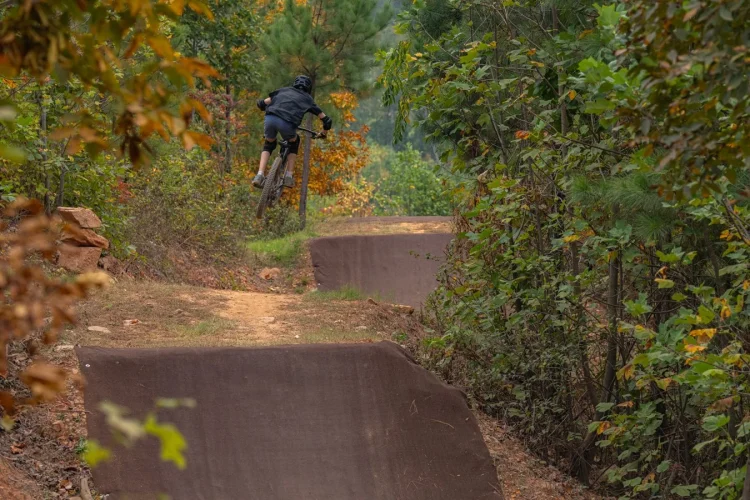
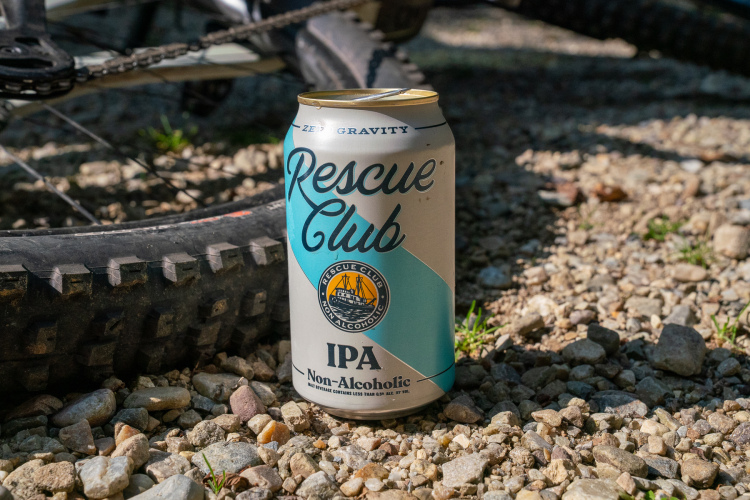

0 Comments